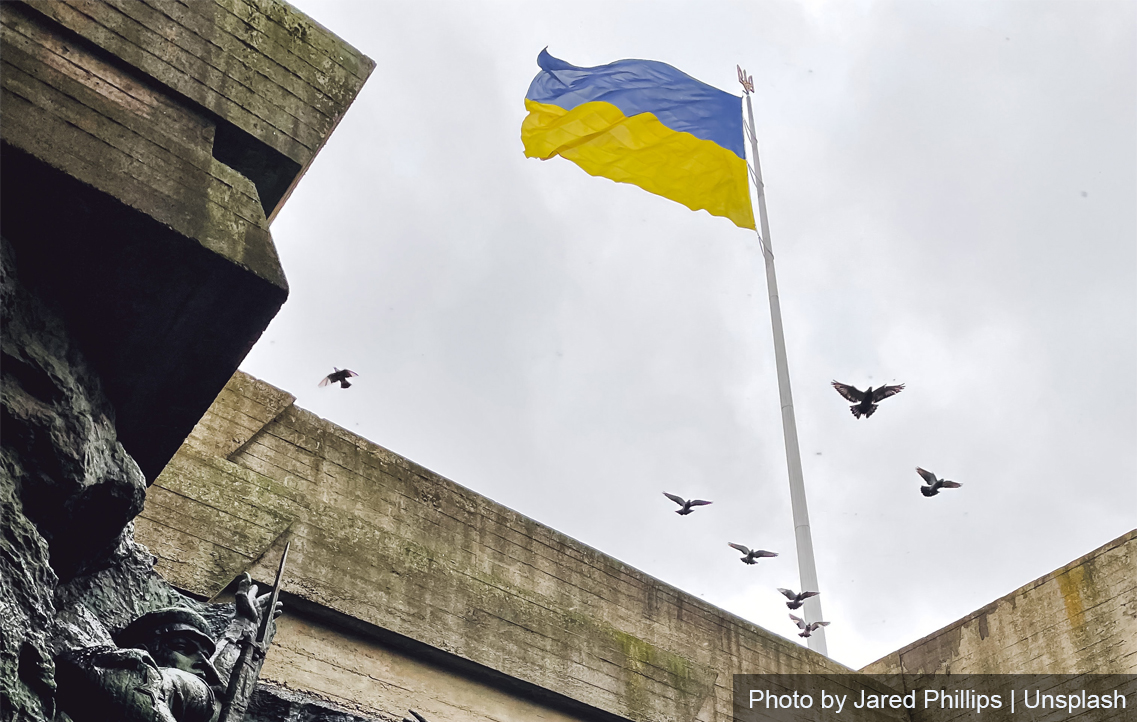
On Feb 24, Russia launched an unprovoked invasion of Ukraine. Although Ukraine is outgunned and outnumbered by Russia, the Ukrainian defenders have fought against the invaders with great courage and indomitable will.
After failing to capture the Ukrainian capital, Kyiv, the Russians have switched the campaign to the east. Their new objective appears to be to occupy the Donbas and to support the two so-called new countries, Luhansk and Donetsk.
How should the conflict be framed? Is it correct to call it a “special military operation”? The answer is no. Is it correct to frame it as a proxy war between Russia and the West? My answer is also no. Is it correct to frame it as a conflict between democracy and autocracy? My answer is again no. What is the correct way to frame the conflict? I shall provide the correct answer in this essay.
Conflict between democracy and autocracy
Several leaders in the West, such as United States President Joe Biden and President of the European Commission Ursula von der Leyen, have described the war in Ukraine as a war between an autocracy, Russia, and a democracy, Ukraine.
I would respectfully point out to those leaders and others that the form of government in those two countries is irrelevant. The war would be just as unjustified and illegal if Russia were a democracy and Ukraine an autocracy.
The truth is that it is not a contest between two forms of government. The objection to Russia’s action is that it has launched an unprovoked war against its neighbour, thereby violating Ukraine’s sovereignty, territorial integrity and independence.
Proxy war between Russia and the West
Many commentators, from America, Europe and even Singapore (Ukraine and the West’s quest for a perfect solution, July 1) have described the war as a proxy war between Russia and the West.
I don’t think the Ukrainians consider themselves the proxy of the West. They are not fighting for the West or to vindicate the superiority of democracy over autocracy. They are fighting for their lives and for their survival. They are fighting for their country’s sovereignty, territorial integrity and independence.
It is a great disservice to the brave people and government of Ukraine to describe them as somebody’s proxy. Ukraine is nobody’s proxy. It is the master of its own destiny.
It is also wrong to suggest that Ukraine’s fate will be decided by the talks between Russia and the West. Ukraine does not wish to be treated as a pawn in some great game between Russia and the West. Ukraine has not given a mandate to America or Europe to negotiate on its behalf. It is quite capable of negotiating for itself. Ukraine’s President Volodymyr Zelensky has offered to negotiate directly with Russian President Vladimir Putin. Mr Putin has rejected the offer. We should support Mr Zelensky and not undermine him.
Outcome of peace talks
There are three possible scenarios for the future. The first scenario is victory for Russia. The second scenario is victory for Ukraine. The third scenario is a stalemate. If at some point in the future, the war is at a stalemate and neither side is likely to prevail, the two countries may then be willing to return to the negotiating table.
What does Russia want? I think Russia would like to keep Crimea and the two puppet republics of Luhansk and Donetsk. What Russia wants is to annex more of Ukraine’s territory.
What does Ukraine want? Ukraine wants to recover Crimea and the territories occupied by Russian forces since the start of the war.
Some well-known and well-intentioned people like Henry Kissinger and Kishore Mahbubani are urging Ukraine to compromise – in other words, to cede territory to Russia in return for peace.
I ask you, my readers, to put yourselves in the shoes of the Ukrainians. After so much destruction and suffering, after losing so many innocent lives, would you be willing to accept, in return for peace, ceding Crimea and Donbas to Russia?
I think most of you will say “no”. You will support Mr Zelensky’s position that Russia must return to Ukraine all the territories it has acquired by conquest. The international law is clear: no country can lawfully acquire territory by military conquest.
Russia has a history of waging wars against its neighbours and gobbling up their territories. For example, in 1939, the Soviet Union waged war against Finland. At the end of the war, in 1940, Finland ceded 11 per cent of its territory, including the major city Vyborg, to the Soviet Union. Is it any wonder that Finland has applied to join the North Atlantic Treaty Organisation?
Russia must not be allowed to prevail in its war of aggression against Ukraine. Although the odds are not in its favour, we must support Ukraine’s ambition to defeat the Russian aggressors. History has many examples of militarily powerful countries being defeated by weaker adversaries. Glory to Ukraine.
Tommy Koh served as the United Nations secretary-general’s special envoy to Russia, Estonia, Latvia and Lithuania, in 1993.
This piece was first published in The Straits Times on 6 July 2022.
Top photo from Unsplash.
